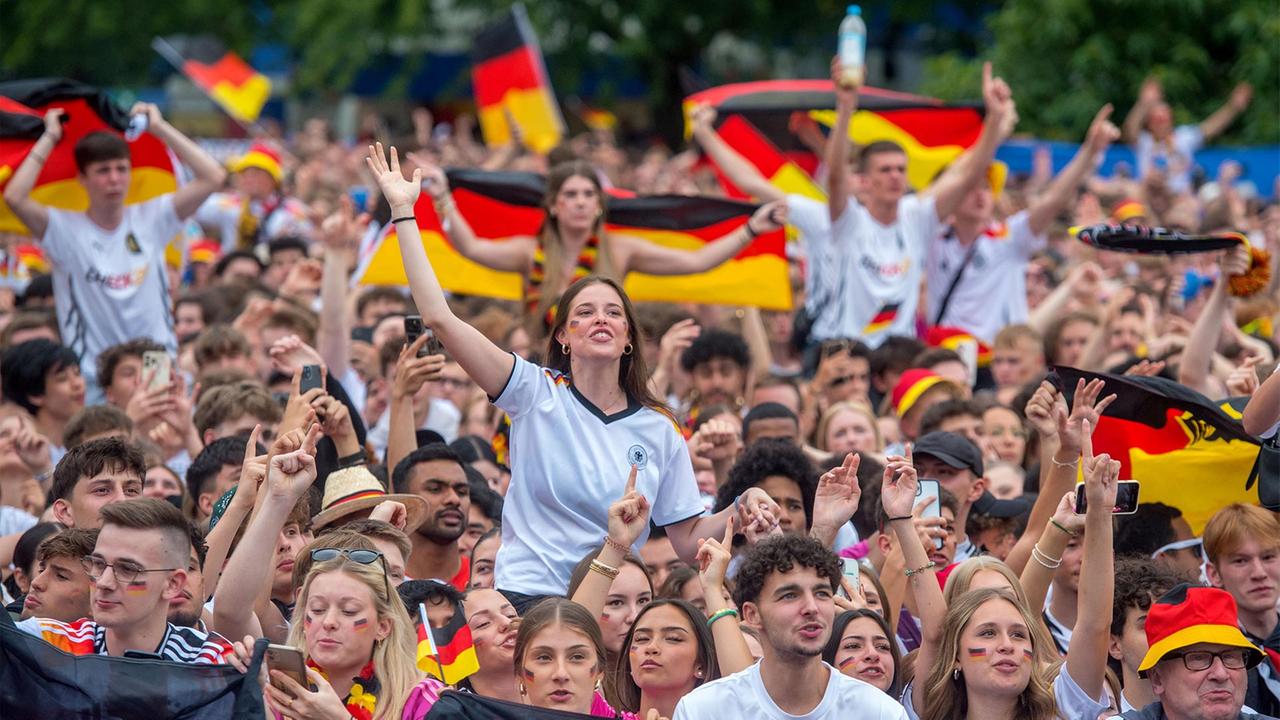The mood of German consumers has improved significantly, also because of the European Football Championship. However, they remain skeptical about the economy – as do industrial companies.
The mood among consumers in Germany has received a little boost from the European Football Championship in their own country. The barometer for the consumer climate in August rose to minus 18.4 points from a revised minus 21.6 points in the previous month, as GfK and the Nuremberg Institute for Market Decisions (NIM) announced today.
Economists surveyed by Reuters had only expected an increase to minus 21.0 points for August. The researchers forecast consumer sentiment for the following month on a monthly basis based on a survey of around 2,000 consumers.
Sustainable effect of the EM?
According to NIM consumer expert Rolf Bürkl, the euphoria that the European Football Championship triggered in many parts of the population in this country “most likely” played a role in the brightening of the consumer climate: “However, it remains to be seen whether this effect is sustainable or is just a short-term flare-up.”
If the improvement in the consumer climate turns out to be a flash in the pan, the road out of the low will be long and arduous, the statement said. For comparison: before the corona pandemic, the consumer climate was around plus ten points.
And observers also fear that the euphoria could quickly fade again. The worst has indeed been reached, says Alexander Krüger of Hauck Aufhäuser Lampe Privatbank, but he also points out: “For greater consumer optimism, further and significant improvements in sentiment are needed.”
Overall improved outlook
According to the survey, a large proportion of households are currently seeing real income growth due to salary increases and a slight drop in inflation. After a small setback in the previous month, Germans are again assessing their salary prospects for the next twelve months as significantly better in July: The indicator gained 11.5 points, climbing to 19.7 points – the highest value since October 2021.
However, planning security must return in order to improve the inclination to make major purchases such as cars or furniture, according to the institutes. Due to the better income prospects, this component had already improved by 4.6 points in July – a higher value was last measured in March 2022.
Pessimistic about the Economic growth
The consumers surveyed are cautious in their assessment of the economy. They believe that the German economy will only recover with great difficulty in the next twelve months. Although the economic expectations indicator rose by 7.3 points, this only made up for the losses from the previous month. The current sentiment is at 9.8 points, as in May.
Experts also believe that an economic recovery will only accelerate next year. “The loss of purchasing power suffered since the pandemic is making consumers cautious. Germans are still saving more of their income than before the pandemic,” concludes Michael Herzum of Union Investment: “There is therefore scope for more dynamic consumption, but it is not being used. We therefore expect German gross domestic product to rise by just 0.7 percent over the year.”
German economy unexpectedly on a downward trend in July
A monthly company survey by financial services provider S&P Global revealed that the German economy may have even shrunk unexpectedly in July. The purchasing managers' index for the private sector – i.e. industry and service providers – fell to 48.7 points, falling below the growth threshold of 50 points for the first time in four months. “This looks like a serious problem. The German economy has fallen back into the contraction zone,” said chief economist Cyrus de la Rubia.




